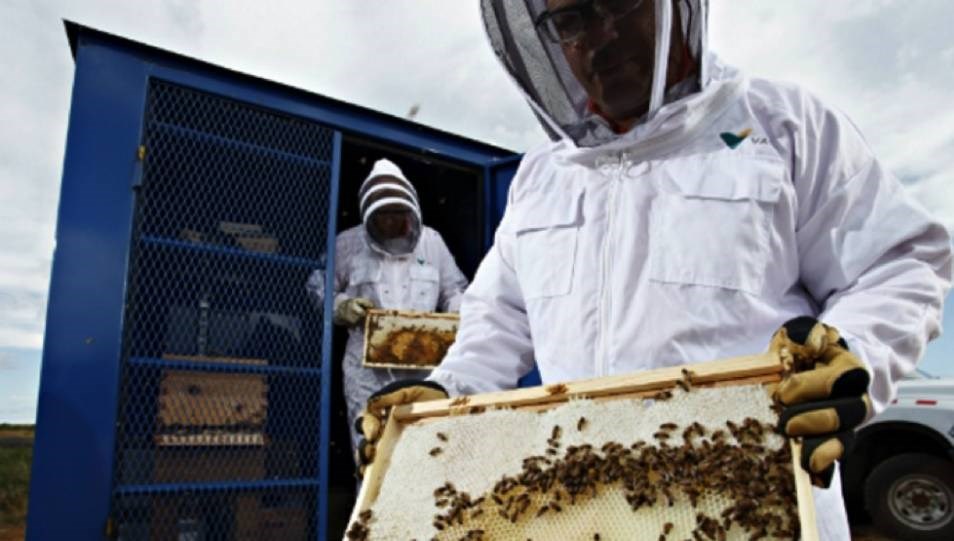Nickel miner Vale has gone into the beekeeping business as a means of promoting biodiversity on a revegetated slag pile adjacent to its Copper Cliff smelting complex in Sudbury.
Some 300,000 to 400,000 bees collect nectar and pollinate flowers within a five-mile radius of the hives, enhancing the vegetation cover on what was once a black, ugly industrial wasteland.
“The idea was formulated as part of our biodiversity action plan,” said Glen Watson, Vale’s superintendent for decommissioning and reclamation. “When we do reclamation projects, we try to our best to get a diverse cover of plant life so it’s more robust.”
Often, in regreening projects, “you tend to choose species that work well,” he explained. The downside though is that you end up with a monoculture. Vale began the regreening of the slag pile in 2006 as part of an effort to reduce the footprint of its smelting operation.
“We decided we would reclaim the section of the slag pile that’s visible to the public,” said Watson. “That involved regrading the area because when you dump slag, you don’t dump it in a fashion that lends itself to easy regreening. It’s just dumped and it makes a very steep wall. It’s also a very hard substance to work with, so it had to be ripped and regarded to create a slope that would allow us to work with heavy machinery.”
Vale covered the slag with 18 inches of a “silty clay material,” then fertilized and seeded the area with a grass and wildflower mix.
Pine trees grown in Vale’s surface and underground nurseries in Sudbury have also been planted on the former slag pile.
“It has been a very successful project and is very popular in the community, particularly for people in the Gatchell area, who had it in their backyard for decades and are now able to look out and see a green hill rather than a black slag pile,” said Watson.
Sign up for the Sudbury Mining Solutions newsletter here.
The bees are domiciled in seven hives set up in a surplus utility trailer where they are safe from any intruders with designs on their honey. Steel mesh keeps any bears at a safe distance, but predators are the least of their problems.
Like all bees, they are dependent on the weather and susceptible to pesticides, explained Wayne Tonelli, a retired Vale employee and beekeeper who has been hired to look after the hives.
“It’s more of a challenge for us in the North to keep bees because of the weather,” he explained.
“We had a very severe winter last year that took its toll on a lot of beekeepers locally and across Ontario. On top of that, we had a cold, rainy summer that made it more difficult for the bees to collect nectar.”
Pesticides – especially neonichinoids, a class of neuroactive insecticides chemically similar to nicotine – are also a threat, observed Sudbury beekeeper Marnie Oystrick.
“We have to try to get control of this and stop it before we lose all of our honeybees, because bees pollinate every third or fourth mouthful that we eat,” she warned.
Beekeepers in Ontario reported losses of more than half of their bees last year and have initiated a class action lawsuit against Bayer Cropscience Inc. and Syngenta Canada Inc., manufacturers of the pesticides.
A small quantity of honey has been harvested by Vale, but the colonies are far from self-sufficient, requiring 120 litres of sugar syrup this fall to keep them going through the winter. Any surplus honey in future years will be donated to the Sudbury Food Bank, said Watson.


